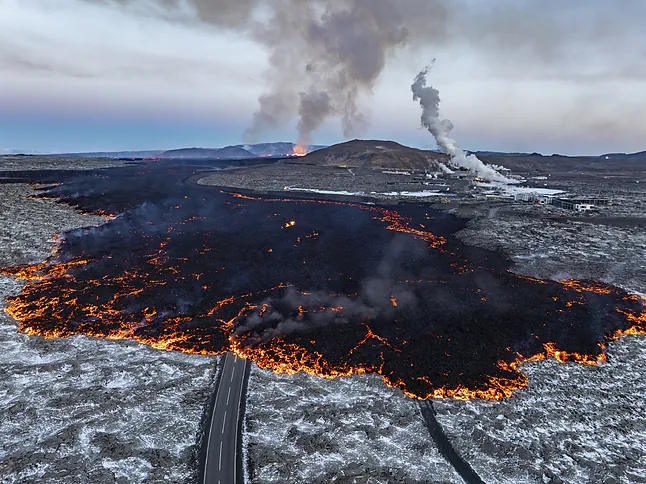Once again, a volcano has erupted in southwest Iceland, as reported by the country's meteorological office, which handles all matters related to volcanology, reports AP. Initially, it was warned that an underground magma flow had been activated near the capital, which eventually led to a full volcanic eruption. Additionally, the area has been affected by hundreds of small earthquakes.
The nearby luxury spa of the Blue Lagoon has been evacuated, as well as the fishing village of Grindavik, where there were about 40 inhabited houses, as reported by the public television channel RUV, citing local police.
Experts detected the activation of an underground magma flow early on. At 6:30 (local time), a seismic swarm with up to 200 tremors was activated, preceding the first deformations in the Sundhnuk area and even within Grindavik, according to the Icelandic Meteorological Office.
By then, experts indicated that an eruption was "likely," and around 9:45 a fissure opened up, reaching half a kilometer and is expected to continue spreading. Below the surface, the magma has already spread over about eleven kilometers, an unprecedented length since November 2023.
Civil Protection activated the evacuation protocol for Grindavik with the initial warnings, the closest populated area to the fissure with around 3,500 inhabitants. Authorities have urged citizens to leave due to the possibility that the threat may be greater than in other recent events.
Known as the land of ice and fire due to its numerous glaciers and volcanoes, the North Atlantic island nation has experienced, with this one, 11 eruptions south of Reykjavik since 2021.
The eruptions on the Reykjanes Peninsula so far have not directly affected the capital and have not caused significant ash dispersion into the stratosphere, avoiding disruptions to air traffic.
